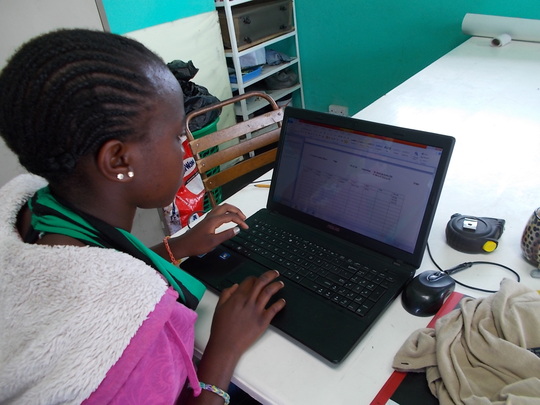Economic Empowerment
Source: All Africa
The digital age is dawning for young Zimbabwean girls and women as they develop new forms of technology that will improve their lives and communities.
The Zimbabwean version of the Technovation Challenge, which ran from January to May this year, was aimed at engaging girls and young women between the ages of 10 and 23 into the world of technology.
"They were tasked to identify a problem in their community and create a mobile application to solve that problem," says Aretha Mare, the programme coordinator of Techwomen Zimbabwe which organised the event. "The challenge demonstrated that young girls in Zimbabwe have great minds."
Where are you?
Among the participants were three young girls from the high-density Harare suburb of Highfield who called themselves the 'Shining Stars'. They devised a mobile application called DeVio that can report cases of gender-based violence in their community by sending an automatic notification to the police emergency number.
Another group, 'Geek-charming', created a mobile application that helps parents track the exact location of their children. It carries the very apt name of 'Uripi?' ('Where are you?'). The app is aimed at minimising the rate of kidnappings and abductions of children, according to 10-year-old Thandeka Mlambo, the group's business developer.
Learning how to code
Women in Zimbabwe make up at least 52 percent of the population. Yet the majority of them have little contact with science and technology. As the Economic Reform Feature Service of the Centre for International Enterprise (CIPE)'s 2008 report notes: "The education system in Zimbabwe has long suffered from an insufficient focus on teaching practical skills, limited access to higher education opportunities, and unequal access for girls to specialised fields such as science."
"As Techwomen Zimbabwe we aim to see gender parity in the technology spaces," says Mare. "The goal of the challenge was to raise interest in technology and entrepreneurship amongst girls and young women through experiential learning. The girls learnt how to code and to write a business plan. They were also equipped with presentation skills which boosted their confidence levels."
Being self-employed
Finally, says Mare, "they learned teamwork and were mentored by the few female role models [we have in this country] who availed themselves to this great cause."
Mare's greatest desire is to bring the mobile applications the girls made to market. She therefore calls on investors to help make this dream a reality - whether it be through cash, product certifications or business coaching.
For Geek-charming's Mlambo, the Technovation Challenge inspired her to view herself as an entrepreneur-in-the-making.
"I intend to no longer wait to find a job, but to create my own employment. I have abandoned my plans of becoming a teacher and I will embrace technology. I dream of opening my own technological company," says Mlambo.

